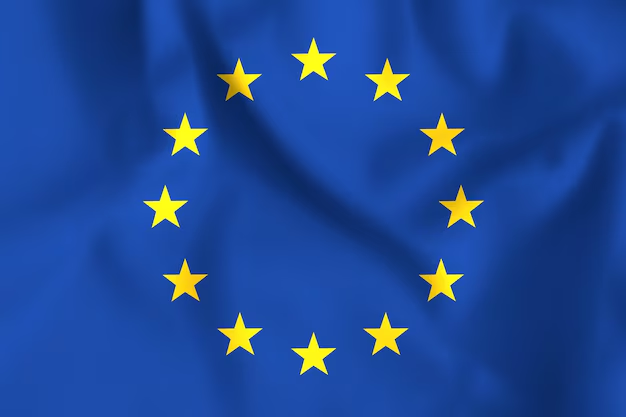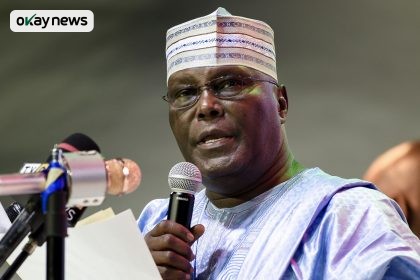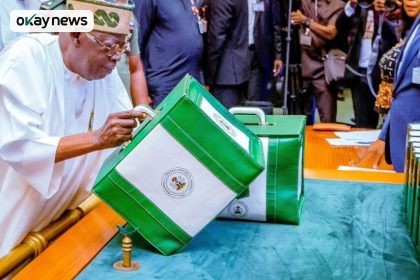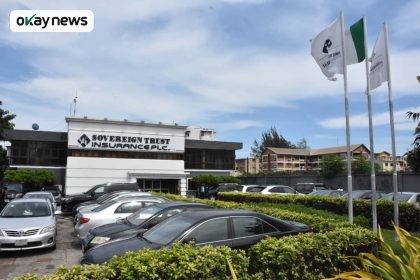Nigeria’s agricultural sector is poised for a transformative leap as the European Union (EU) has endorsed a new €190 million (approximately ₦320.5 billion) credit line to enhance financing for farmers, agribusinesses, and other players across the agricultural value chain.
The funding, which will be administered through Nigerian commercial banks and development finance institutions, aims to tackle the long-standing challenges of inadequate credit access and limited investment in the country’s food production sector.
The initiative was unveiled during a bilateral meeting between senior executives of the European Investment Bank (EIB) and delegates from Nigeria’s Federal Ministry of Budget and Economic Planning, held on the sidelines of the Global Gateway Forum in Brussels, Belgium.
A statement issued by Bolaji Adeniyi, the Special Adviser on Media to the Minister of Budget and Economic Planning, confirmed the development and described it as a major step toward strengthening Nigeria’s drive for economic diversification.
EU’s Commitment to Sustainable Growth
Speaking at the session, Thourayya Tricki, Director for International Partnerships at the EIB, emphasized that the new credit line reflects the EU’s deep commitment to supporting Nigeria’s agricultural transformation and sustainability agenda.
“This credit line is part of our continued effort to strengthen Nigeria’s agricultural value chains, especially in cocoa and dairy,” Tricki said. “The investment package will not only expand access to finance but also promote sustainability and competitiveness in Nigeria’s agri-food products.”
Tricki, who was joined by Diedrick Zambon, the EIB’s Head of Sub-Saharan Africa Relations, noted that the facility comes with both credit and technical assistance components to strengthen institutional capacity in Nigeria’s financial system.
She added that the objective is to “de-risk agricultural lending and build institutional capacity for long-term financing in the sector,” ensuring that farmers and agribusinesses can access credit at more favorable terms.
Nigeria’s Partnership and Policy Drive
Representing the Nigerian delegation, Bolaji Onalaja, Special Assistant to the Minister of Budget and Economic Planning, and Benjamin Galadima, EU Unit Focal Officer, reaffirmed the Nigerian government’s dedication to reforms under President Bola Ahmed Tinubu’s Renewed Hope Agenda.
“Our government is determined to create an enabling environment for investment through the forthcoming National Development Plan (2026–2030) and the Ward-Based Development Programme, which will ensure that growth reaches communities at the grassroots,” Onalaja explained.
According to Okay News reports, the Nigerian team also met with high-ranking officials from the Directorate of International Partnerships and the European Bank for Reconstruction and Development (EBRD) to explore further collaborations in renewable energy, green infrastructure, and industrial development.
EU’s Broader Support to Nigeria
Nigeria continues to benefit from multiple EU-funded initiatives. These include an €18 million technical assistance grant to bolster the regulatory framework for vaccine production and a €50 million credit facility to expand access to finance within the pharmaceutical sector.
On behalf of Senator Abubakar Atiku Bagudu, the Minister of Budget and Economic Planning, who was on an official assignment in Vienna, Austria, the delegation expressed gratitude to Ambassador Gauthier Mignot, Head of the EU Delegation to Nigeria and ECOWAS, for facilitating Nigeria’s participation in the forum.
Global Gateway and Future Prospects
The Global Gateway Forum, an EU flagship investment platform, unites governments, development banks, and private investors to fund projects that promote digital transformation, green transition, and human capital development across Africa and other regions.
In her keynote address, Ursula von der Leyen, President of the European Commission, reaffirmed the EU’s resolve to establish partnerships that foster inclusive growth and trust.
“We are expanding the Global Gateway Investment Package to €400 billion and launching a dedicated Investment Hub to accelerate project delivery, especially in Africa,” von der Leyen declared.
Driving Agricultural Modernisation and Food Security
Experts believe the new EU–Nigeria financing deal will significantly contribute to modernizing the country’s agricultural systems, improving food security, and enhancing export competitiveness. It also signals renewed optimism in Nigeria’s capacity to attract sustainable financing to key sectors of its economy.
By deepening cooperation through the Global Gateway Strategy, both the EU and Nigeria aim to unlock agricultural opportunities that will drive economic diversification, generate employment, and strengthen trade relations between Africa and Europe.







